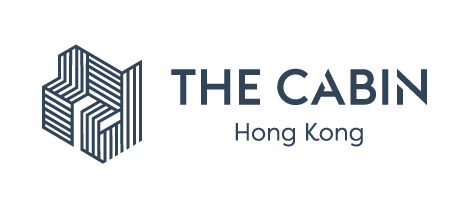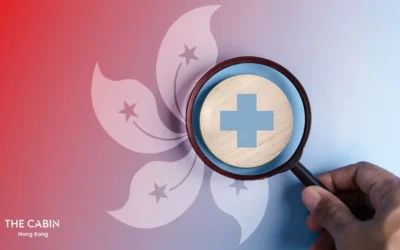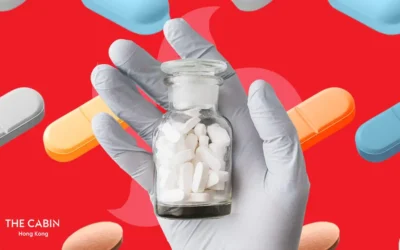Drug abuse is a worldwide problem. As one of the most occupied cities in the world, Hong Kong is exposed to this growing social problem. Drug addiction in Hong Kong has created many economic and social challenges, which have also affected the youth. Youth drug abuse in Hong Kong is a major problem that requires the close attention of the public. The society must be aware of the contemporary drug situation in the country since it has a massive negative impact.
Easy Access to Drugs
Unfortunately, it is easy for drug abusers and drug traffickers to buy a wide range of illicit drugs in Hong Kong. What is even alarming is that the youth, as young as 12 years old, find it easy to get their fix. In recent studies, a great number of these youths are drug users.
This figure is disturbing especially because the factors of why these kids turn to drugs include stress, depression, and even boredom. There is also a portion of the group who use drugs because of peer pressure. The remaining portion is those who try it because of the euphoric sensation and sensory satisfaction they can get.
The most widely used drug is methamphetamine which is popular across all age groups. Although the government assures a decline in drug addiction rates, many experts believe that things are much different in reality. Since the youth are so adept at using technology to communicate with each other, e.g. a hidden online network called the Darknet to push or buy drugs.
The drug trade includes teenagers as drug couriers, attempting to cross borders while carrying hefty amounts of illicit drugs. These young individuals are easily lured because of opportunities to earn quick money, travel, and get a free supply of drugs.
Addiction Problem in Hong Kong Schools
As per statistics, there is a significant drop of students taking drugs. However, alarms were raised because according to new surveys, at least 81% of total students admit to abusing drugs. The problem is that most of these students never sought help. This increases the probability that the society is having a “hidden” drug problem. In a 2014 / 2015 survey, it was revealed that the average age that students start to abuse drugs was 15.
But this drug abuse problem in school has a whole new context. A few years back, reports of parents giving their kids “smart pills” sparked a national controversy. Supposedly, drugs such as Adderall, Modafinil, and Retalin can enhance memory, increase cognitive abilities, reduce fatigue, and boost alertness. These effects will help the students to feel confident.
This issue about smart drugs is very worrying. It suggests that the parents themselves are sourcing for the drugs so that their children can maximize their academic performance. Also adding to the concern is the fact that those drugs were found to have long-term side effects. Chronic users may suffer mental issues such as depression, anxiety attacks, aggression, paranoia, and constant irritability. Frequent abusers, on the other hand, are prone to having physical illnesses like high blood pressure, stroke, and seizure attacks.
Hong Kong has a highly competitive academic environment. Parents and students are most likely to be tempted by any methods that can help boost performance. Although these drugs produce positive results at the start, they are very short-lived. The negative and long-lasting consequences are never appealing to begin with.
Where It All Began
The origin of youth drug abuse in Hong Kong is a widely studied subject in the latter half of the last century. There were several theories formed to explain how drug addiction started among younger individuals. Among the most popular theories include psychological theory, socio-cultural theory, moral theory, genetic theory, and disease theory. All of these theories produced several conclusions.
In 1992, Weiner clarified the reasons of youth drug abuse. He pointed out several factors that are related to teenager drug dependence. Included in the factors are personality, family, and peers. He specifically called these factors as the triad of primary elements. When these factors are combined, they create the bio-psychosocial model that will determine a young person’s involvement with drugs. However, a teen needs only one strong influence out of the three to develop drug-using tendencies.
Personal Variables
A young individual’s resiliency can be affected when the negative psychological characteristics work together with personality and negative personal experiences.
The psychological characteristics are still in a developing phase in a person’s youth. This is the time when a person is excited to try new adventures, challenge authority, and savour all the chances of independence. This is why the young people may consider drug use as a way to alleviate boredom, make them feel more confident, and to show the elders who’s the boss.
In terms of personality, the more teenagers feel less of themselves, the more that they become vulnerable to stress. Difficulties in self-efficacy, damaged self-esteem and a sense of incompetence will make them want to escape thus a heightened risk for drug use.
Miserable personal experiences also contribute to the negative feelings. Included in this aspect are those who are out of school youth, homeless, are in foster care, involved in prostitution, and young offenders. Their family members may also be dealing with drug abuse themselves like drug addict parents or siblings. A problematic teen tends to abuse drugs to take a temporary break from the harsh realities of life.
Dysfunctional Family
The family is an individual’s primary environment when growing up. There is an intimate connection between members. It is understandable that the family can influence a person’s behaviour and perception about drugs. A teen’s drug-use problem can be as a result of major changes in the family structure. Death of a parent, divorce, being jobless—these can have a big impact on a teen.
The family relationship is considered as a major factor in a teen’s drug problem. The parenting practices like ineffective discipline, poor communication, and excessive or low monitoring are variables in a teenager’s initiation and forming of a drug habit.
Peer Factor
The youth consider peers as a second family. They make an impact on their behaviours and even on personal values and beliefs. The interpersonal relationship is comparable with that of a family so it can be considered as a perpetuating environment for a teen’s drug abuse.
In a peer relationship, a teen can experience peer crisis or a peer shock. What happens is that a teen is forced to try or maintain drug use to maintain membership in the peer group. It is a way to feel a sense of belonging especially when a young person doesn’t have a strong emotional bond at home.
Societal Factor
The community may also be a contributing factor to a teen’s drug use. The school, police and criminal justice systems, local government institutions, and community organizations should be a safe haven apart from the family. However, a part or the whole society may also be damaged to a point where it influences the teen to use drugs. It can be that the society that a teen grew up with is tolerant with drug abusers.
If any or all of these factors are not giving a positive image starting from childhood, then a teen will most likely have an impaired perception on what is right or wrong. It will also lead the person to lack the coping skills necessary to survive environmental challenges. As a result, the individual will lean to drug use either voluntary or as a passive habit.
The Dangers of Youth Drug Abuse
The youth are more prone to engage with drugs mainly because they go through an experiment stage. Parents and significant others must be aware that there are dangers that come with youth drug dependence. Early action is encouraged upon having knowledge of a drug problem. Some of the dangerous effects of illicit drugs in the youth’s body are the following:
- Emotional and psychological problems like depression, mood swings, suicidal thoughts, anxiety, and mental illnesses like schizophrenia.
- Behavioural problems such as inability to form relationships, social problems, violence, and developing delinquent behaviours like stealing.
- Risky sexual behaviour wherein the youth engage to unprotected sex increasing STD tendencies, sexual assault and unplanned teenage pregnancies.
- Likelihood of having blood-borne diseases like HIV, Hep B, and AIDS increases.
- Brain damage and illnesses like memory problems, impaired perception, brain shrinkage, and severe damage to the brain stem
- Car-accidents and related injuries.
New Approach for Treatment
Youth drug abuse in Hong Kong is a matter that is taken seriously by the authorities. The government has implemented a number of measures to take action on this growing problem. Along with creating laws, there are promotion and information activities and stricter policy reinforcement.
Social Work Strategies
Drug addiction treatment in Hong Kong also recognizes the importance of collaboration between the health sector and social workers. Drug rehab in Hong Kong consists of a compulsory placement programme paired with a counselling programme in a substance abuse clinic.
With the aid of social work, the social problems are dealt with and those who belong in the disadvantaged groups can have assistance.
Individual Approach
One of the efforts in trying to combat drug abuse in Hong Kong is to initiate programmes that approach the patients individually. First is prevention and education where the doctors, authorities, and the community work together. The social workers will host discussions and problem-solving exercises with the help of the professionals. This method is used to emphasize drug preventive process and to make the public aware about the consequences of drug use.
Aside from educating the public as a whole, social workers will conduct further causes probing. It is recognized that there are several factors that make the younger people at risk of using drugs. The best thing to do is to find the real causes and help the individual to cope up. Counselling is done in this part in order for the teen to identify the latent issues first.
Another major activity that targets an individual is empowerment. The abusers are assisted in developing skills that will fight peer pressure and influence. With the help of cognitive-behaviour therapy, the youth will improve their self-efficacies and will have an enhanced self-control capacity.
Personal and social skills training also follow to enable the teens to contend with all the stressful and negative situations. Youth centres and the community can work hand in hand to assist Hong Kong teens to develop individual anti-drug behaviour. Different activities are used as methods to help them reduce their anxiety. Recreational activities like sports and art classes are very useful to divert strong emotions such as hate and anger.
Family Approach
The family is considered as the best environment for treatment recovery. With the help of social workers, families are assisted to remove the risk elements that are associated to teenage drug use. Family therapy is highly encouraged where several activities are done to promote healthier family dynamics. Once the family relationship is strengthened, they will be able to create a positive environment. This will help with the continuity of care and achieving full support towards recovery.
Peer Approach
Before and while on the process of giving up the habit, the youth are faced with the problem of being excluded from other young people who do not use drugs. In order to complete treatment, they need to understand the need to also give up the very peers who made them trapped to substance abuse. The mission is to make them comfortable and confident to create new connections. They have to make friends with people who are not drug abusers.
Group therapies are effective methods in achieving this. Those who are recovering from drug use are grouped together to discuss experiences, emotions, and thoughts about avoiding drugs. This is effective in showing each other the different impacts of trying to give up drugs. There is also a therapy where recovering teens are grouped with teens that do not take drugs. They will be able to listen to other recovering addicts’ experiences why non-users avoid drugs and see how positive their lives are. They can also get support and a chance to make new friends. Positive peer support is an important factor in preventing a relapse.



